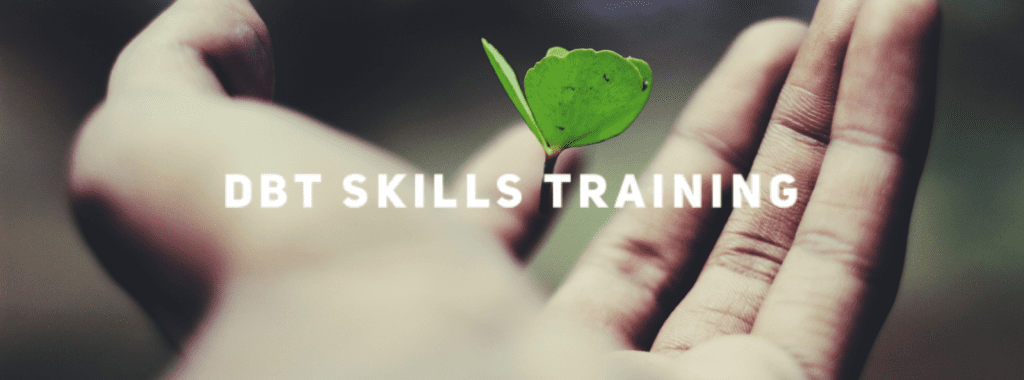
What is DBT?
Dialectical behavior therapy (DBT) is a specific type of cognitive behaviour therapy (CBT) that was developed to help treat people with intense emotional fluctuations and problems with impulsivity and self-harm. Formal DBT involves weekly psychotherapy sessions, telephone coaching between sessions, and weekly group sessions.
DBT theory proposes that some people are more prone than others to react to emotional or relational situations in very intense and out-of-the-ordinary ways. It proposes that some people’s arousal systems act faster and more strongly than other people’s, making it easy to become quickly angered or enraged and harder to calm down.
What is DBT Skills Training?
 DBT skills training involves teaching many of the effective strategies from DBT without incorporating the telephone coaching or group sessions. Research demonstrates that DBT skills training is effective in reducing symptoms and problems related to post-traumatic stress disorder (PTSD), borderline personality disorder, and emotional dysregulation.
DBT skills training involves teaching many of the effective strategies from DBT without incorporating the telephone coaching or group sessions. Research demonstrates that DBT skills training is effective in reducing symptoms and problems related to post-traumatic stress disorder (PTSD), borderline personality disorder, and emotional dysregulation.
DBT skills training is supportive and builds on a person’s strengths. It involves identifying and challenging problematic beliefs about the self, others, and the world. DBT skills training involves the therapist and client collaborating together to work our problems.
Four Parts of DBT Skills Training
- Mindfulness – Paying attention to experience, without judgement, in the present moment. We aim to “Observe, Describe, and Participate” when practicing mindfulness.
- Interpersonal effectiveness – Interpersonal effectiveness, at its most basic, refers to the ability to interact with others. It includes skills we use to achieve the following:
- attend to relationships,
- balance priorities versus demands,
- balance the “wants” and the “shoulds”, and
- build a sense of mastery and self-respect.
- Distress tolerance – Finding meaning for, and tolerating distress; tolerating and surviving crises and with accepting life as it is in the moment. Four sets of crisis survival strategies are taught: distracting, self-soothing, improving the moment, and thinking of pros and cons. Acceptance skills include radical acceptance, turning the mind toward acceptance, and willingness versus willfulness.
- Emotion regulation – Here we learn to properly identify and label emotions, identify obstacles to changing emotions, reduce vulnerability to “emotion mind”, increase positive emotional events, increase mindfulness to current emotions, take positive action, and apply distress tolerance techniques.
Most practitioners at Brookside Psychologists incorporate DBT skills training into their practice with clients.
